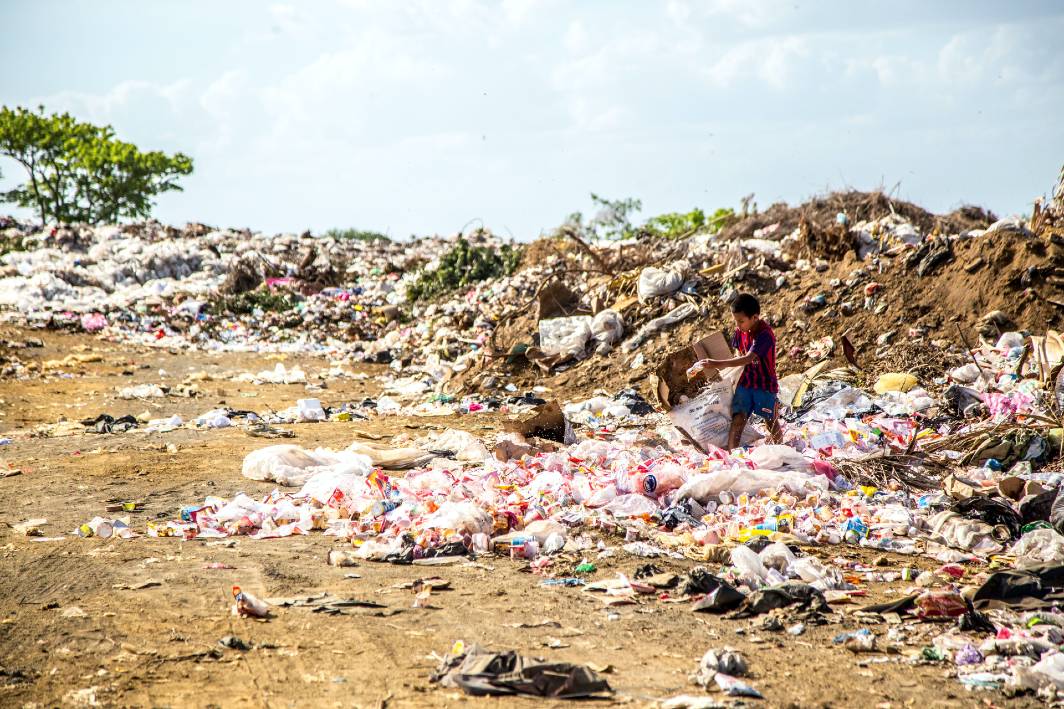Climate crisis risks displacement of one billion people, new report finds
One billion people live in countries unlikely to cope with the impacts of climate change and other ecological threats, creating conditions for mass population displacement. That’s according to a new report from independent think tank the Institute for Economics & Peace (IEP), which analyses data on population growth, water stress, food insecurity, droughts, floods, cyclones, rising temperatures and sea levels. It combines this data with measures of resilience to shed light on the countries least likely to cope with extreme ecological shocks.
The inaugural Ecological Threat Register (ETR) finds that 19 countries with the highest number of ecological threats are among the world’s 40 least peaceful countries including Afghanistan, Syria, Iraq, Chad, India and Pakistan. These countries have a combined population of 2.1 billion people, which is around 25 per cent of the world’s total population.
The report says over one billion people live in 31 countries where the country’s resilience is unlikely to sufficiently withstand the impact of ecological events by 2050, contributing to mass population displacement. The country with the largest number of people at risk of mass displacements is Pakistan, followed by Ethiopia and Iran. The report warns that in these countries, even small ecological threats and natural disasters could result in mass population displacement, affecting regional and global security.
Water security
Water stress is highlighted as a major threat and the report warns that by 2040, a total of 5.4 billion people – more than half of the world’s projected population – will live in the 59 countries experiencing high or extreme water stress, including India and China. 3.5 billion people could suffer from food insecurity by 2050; which is an increase of 1.5 billion people from today.
The report finds that regions that have high resilience, such as Europe and North America, will not be immune from the wider impact of ecological threats, such as a significant number of refugees. The European refugee crisis in the wake of wars in Syria and Iraq in 2015 saw two million people flee to Europe and highlights the link between rapid population shifts, political turbulence and social unrest.
Natural disasters
The report also highlights the increasing likelihood of weather-related disasters (such as droughts and storms) caused by climate change. Flooding has been the most common natural disaster since 1990, representing 42 per cent of recorded natural disasters. China’s largest event were the 2010 floods and landslides, which led to 15.2 million displaced people. Flooding is also the most common natural disaster in Europe, accounting for 35 per cent of recorded disasters in the region and is expected to rise.
19 countries included in the ETR are at risk of rising sea levels, where at least 10 per cent of each country’s population could be affected. The report says this will have significant consequences for low-lying coastal areas in China, Bangladesh, India, Vietnam, Indonesia and Thailand over the next three decades – as well as cities with large populations like Alexandria in Egypt, the Hague in the Netherlands, and Osaka in Japan.
Steve Killelea, Founder & Executive Chairman of the Institute for Economics and Peace, said: “Ecological threats and climate change pose serious challenges to global peacefulness. Over the next 30 years lack of access to food and water will only increase without urgent global cooperation. In the absence of action civil unrest, riots and conflict will most likely increase. COVID-19 is already exposing gaps in the global food chain”.













